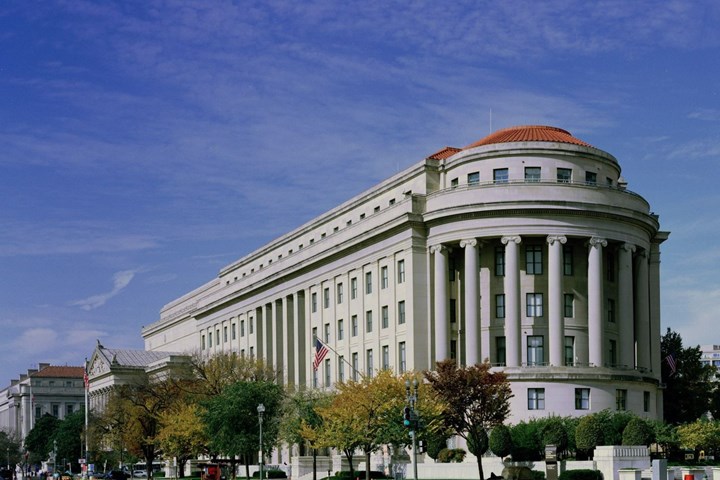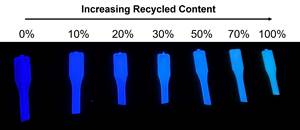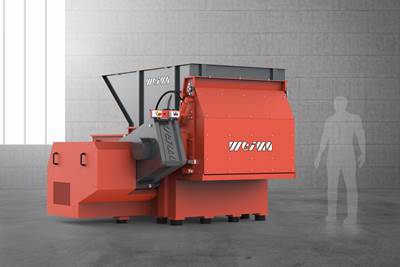Revised Green Guides Could Mitigate Supply Concerns in Recycled Materials Market
A conversation with Andrea Bassetti, plastics recycling analyst at ICIS, about the green guides and potential impacts on recycled resin pricing.
The FTC is conducting a review of its Guides for the Use of Environmental Marketing Claims (A.K.A. the green guides) after receiving thousands of public comments. The guides have not been updated since 2012. At issue are the definition of the term “recyclable”, the use of the recycling symbol on packaging, and when qualified or unqualified sustainability claims are appropriate. Andrea Bassetti, senior plastics recycling analyst at ICIS, discussed the potential impact of the Green Guides on recycled materials markets with Plastics Technology.
Plastics Technology: Do you think it is more important how restrictive/permissive the green guides are, or is clarity most important?
Bastetti: I think in the end clarity is going to be what’s most important in this. In the US, a lot of policy laws differ from state to state, so it becomes very difficult to make strict guides that are going to apply well in a lot of different situations. So, in this case going for simplicity and clarity is going to have the biggest impact.
PT: One of those state to state differences concerns the recycling symbol, which is required in many states but can be a source of confusion.
A.B.: Correct. Clarity in the guidance can not only help the marketers protect themselves, but also help consumers make very quick and good decisions. They are not going to spend a lot of time doing research, so something as simple as that symbol plays a huge role in our recycling system.

The Apex Building, headquarters for the Federal Trade Comission (FTC).
Photo Credit: Carol M. Highsmith
PT: A lot of capital investment will be required to get recycling infrastructure up to where it needs to be, if companies are to meet their goals for using recycled resin. Is that money kept on hold when there is ambiguity in regulations or guidance?
A.B. There’s a big, driving momentum to solve a lot of this issues. We see the biggest barrier to consistent supply as the collection system. Within collection, there’s so much to tackle: everything from product design to local infrastructure to consumer education, all of which the FTC can provide a lot of help and guidance for. That’s why this has been so interesting for us: it can really lead to resolving a big problem, which is for supply to meet the demand.
I wouldn’t say that investments are being held back due to ambiguity. I’d say that given the current market conditions, everyone is a little hesitant and waiting for plastics markets to go back up a bit. That might be a bigger driver. But the momentum is there. There are a lot of commitments coming up for 2025, 2030, 2050. We’re going to have to get there somehow. Realistically, there are barriers at every step, so it’s going to require a lot of investment, a lot of brains, and a lot of energy. We’re excited to see how that develops.
PT: What about the investments needed to ramp up chemical recycling, from the pilot and demonstration facilities to full scale?
A.B.: It’s very much in line with hesitation around chemical recycling. They are figuring out the technology, but also when the timing will be right to ramp up. Even on the mechanical recycling side, clients are not running at 100% capacity. They’re struggling to get supply and—at this specific state of the market they are struggling to sell.
So everyone is pausing at the moment, and not only is there hesitation on if chemical recycling will be recognized as recycling, they have to figure out what is the right timing? And do we have a steady supply of plastic?
PT: What factors can influence the supply of recycled plastics?
A.B.: We have a lot of different policies at state levels, some are very good at collecting plastics and some are not. In 2022 we actually saw a net import of bales to be recycled from outside the US. That shows that it’s not that there is a lack of demand or ability to recycle but we are struggling to find the actual plastic. That’s something the FTC green guides can help with.
PT: What do you think about where prices for recycled plastics might be headed in the future?
A.B. We’re definitely seeing some low prices right now. It isn’t only in recycled plastics: it’s the whole market. There are all these commitments coming up, starting in 2025, so with the market so low right now we expect to see these prices go back up in 2024, because everyone is going to be rushing to meet those. There is concern that those commitments might be pushed back, and that may affect how long it takes for prices to go back up. So the next three to six months will be key to seeing how things will play out. We are excited and optimistic that the commitments will be a huge driver in strengthening the market for recycled plastics.
Related Content
Fast, Simple QC Method Directly Quantifies Recycled Content in Plastics
Novel fluorescence-based spin-out technology provides a rapid and reliable method to measure and certify recycled content in a wide range of plastics.
Read MoreHonda Now Exploring UBQ’s Biobased Material Made from Unsorted Household Waste
UBQ is aiming to expand its reach for more sustainable automotive parts as well as non-automotive applications.
Read MoreResins & Additives for Sustainability in Vehicles, Electronics, Packaging & Medical
Material suppliers have been stepping up with resins and additives for the ‘circular economy,’ ranging from mechanically or chemically recycled to biobased content.
Read MoreAutomotive Awards Highlight ‘Firsts,’ Emerging Technologies
Annual SPE event recognizes sustainability as a major theme.
Read MoreRead Next
For PLASTICS' CEO Seaholm, NPE to Shine Light on Sustainability Successes
With advocacy, communication and sustainability as three main pillars, Seaholm leads a trade association to NPE that ‘is more active today than we have ever been.’
Read MoreMaking the Circular Economy a Reality
Driven by brand owner demands and new worldwide legislation, the entire supply chain is working toward the shift to circularity, with some evidence the circular economy has already begun.
Read MoreRecycling Partners Collaborate to Eliminate Production Scrap Waste at NPE2024
A collaboration between show organizer PLASTICS, recycler CPR and size reduction experts WEIMA and Conair will seek to recover and recycle 100% of the parts produced at the show.
Read More


























